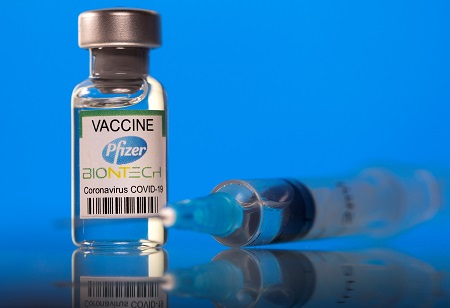India Pharma Outlook Team | Monday, 03 July 2023

The European Commission announced on Friday that it has reached agreements with Pfizer and several European drugmakers to reserve capacity to produce up to 325 million vaccines per year in the event of a future global health emergency. The agreement applies to mRNA, vector-based, and protein-based vaccines and is unrelated to existing COVID-19 vaccine agreements between the EU and vaccine manufacturers, including Pfizer of the United States. According to the European Commission, Europe must be better prepared for future health emergencies.
The agreement ensures that companies are prepared to respond to a crisis by keeping their facilities up to date and monitoring their supply chains, "including stockpiling where necessary," according to a statement from the Commission. Companies would "rapidly start production" if a new public health emergency was declared, it said. Vaccine equity activists, on the other hand, warned that the EU risked repeating what the World Health Organisation dubbed "vaccine apartheid" during COVID-19. "After a pandemic in which developing countries were pushed to the back of the queue for vaccines and treatments," said Mohga Kamal-Yanni, policy co-lead for the People's Vaccine Alliance. The Commission has chosen Pfizer plants in Ireland and Belgium to reserve capacity for mRNA vaccine production.
It chose the Spanish companies Reig Jofre and Laboratorios Hipra SA to reserve capacity for protein-based vaccines and the Dutch company Bilthoven Biologicals B.V. for vector-based vaccines. Pfizer stated that it "understands the critical need for improved pandemic preparedness and response planning and has taken several key steps towards readiness for potential future global disease outbreaks," but did not elaborate. Reig Jofre said its deal with the EU reserved capacity for four years, with the possibility to extend for a maximum duration of eight years. Neither the companies or the EU disclosed any financial details of the agreement. The World Health Organisation has urged governments and manufacturers to reserve up to 20 per cent of any tests, vaccines or treatments for the global agency to distribute in poorer countries to avoid a repeat of the "catastrophic failure" during the COVID pandemic, according to a draft of a global pandemic agreement currently being discussed.